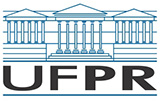Dr. Elizabeth F. Churchill
Director of User Experience at Google
Talk: Human Computer Interaction: Past, Present and Future
Human Computer Interaction (HCI) as a discipline is around 35 years old. As we move into the next decades of HCI we have some wonderful opportunities for revisiting old methods and tactics for understanding how people interact with computers, but also the challenge of thinking about new methods for understanding, innovating and pushing the boundaries of the discipline. As interactive applications, devices and services become embedded into our environments, as artificial intelligence (AI) techniques create more and more dynamic services that underlie our digital interactions, as we are increasingly able to manage and configure our devices and program their interactions, and as computation becomes increasingly embedded into our bodies, we need new methods, new tools and new perspectives. In this talk, I’ll look to the past of HCI as a way of thinking about the future of our discipline.
Elizabeth’s current work focuses on designer and developer tools for the connected ecosystems of the Social Web and Internet of Things. For 2 decades, she has been a research leader at well-known corporate R&D organizations including Fuji Xerox’s research lab in Silicon Valley (FXPAL), the Palo Alto Research Center (PARC), eBay Research Labs in San Jose, and Yahoo! in Santa Clara, California. Elizabeth has contributed groundbreaking research in a number of areas, publishing over 100 peer-reviewed articles, co-editing 5 books in HCI related fields, contributing as a regular columnist for ACM’s interactions magazine since 2008, and publishing an academic textbook, Foundations for Designing User Centered Systems. Her upcoming book, Designing with Data, will be published in 2017. She has also launched successful products and has more than 50 patents granted or pending. A Distinguished Scientist and Speaker of the Association for Computing Machinery (ACM) and a member of the CHI Academy, Elizabeth is the current Secretary/Treasurer of the ACM. She served in the ACM SIGCHI Executive Committee for 8 years, 6 years of those as Executive Vice President. Elizabeth sits on the advisory board of a number of University Departments and was the recent recipient of the CITRIS and Banta Institute Athena Award winner for Executive Leadership.
Prof. Clarisse Sieckenius de Souza
PUC-Rio
Talk: HCI and the Pragmatic Component of Contemporary Theories of Computation
This talk draws a parallel between the speaker’s personal research trajectory, as she migrated from Linguistics to Computation, and the inclusion of Pragmatics in language theory in the 1980’s. The goal of the parallel is to argue that, just like what happened then to language theory, contemporary theories of computation may have to widen their perspective on their object of study in order to face challenging questions brought about by technological development to individuals, societies and cultures. In this framing, HCI would play in theoretical Computer Science the same role as Pragmatics has played in Linguistics. However, this role entails new challenges to HCI theories, themselves, some of which will be illustrated by the evolutionary path of Semiotic Engineering. In conclusion, the talk proposes that HCI may have a place to hold in the so-called “hard core” Computer Science.
Clarisse is a Full Professor at the Informatics Department of Rio de Janeiro’s Pontifical Catholic University (PUC-Rio), where she teaches, supervises graduate students and does research in the area of Human-Computer Interaction (HCI). Her main interests are HCI theory and methodology; HCI evaluation; computer-mediated human communication; end-user programming; explanation systems; cultural dimensions in HCI design; and more recently she’s been doing research on self-expression via software. She was a visiting researcher at Stanford University, in Terry Winograd’s group, University of Waterloo, in Tom Carey’s group, and at the University of Maryland Baltimore County, in Jenny Preece’s group. She also the founder of SERG (Semiotic Engineering Research Group) and the recipient of two ACM SIG Awards. In 2010 she was the co-winner of the ACM SIGDOC Rigo Award in 2013 she was inducted to the ACM SIGCHI CHI Academy. She is also one of the co-winners of the IFIP TC13 Pioneers of HCI Award in 2014 and in2016 she was the winner of the Scientific Merit Award of the Brazilian Computer Society. Clarisse is also one of CRA-W / Anita Borg Institute’s Notable Women in Computing featured in Jessica Dickinson Goodman’s cad deck and poster. She has supervised or co-supervised 25 PhD students (20 as the main supervisor) and 18 MSc students. She is the creator of Semiotic Engineering, a semiotic theory of HCI, and the author of four international books on this topic: The semiotic engineering of human-computer interaction (MIT Press, 2005), Semiotic engineering methods for scientific research in HCI (Morgan & Claypool, 2009 – with Carla Leitão), A Journey through Cultures (Springer, 2013 – with Luciana Salgado and Carla Leitão) and Software Developers as Users – Semiotic Investigations in Human-Centered Software Development (Springer, 2016 – with Renato Cerqueira, Luiz Marques, Rafael Brandão and Juliana Ferreira). She is also the author of the reference chapter on Semiotics and Human-Computer Interaction of Interaction-Design.Org’s Encyclopedia of Human-Computer Interaction. Clarisse Sieckenius de Souza graduated as a Translator and Conference Interpreter – English, French, Portuguese – from PUC-Rio (1979), where she also obtained an M.A. in Portuguese (1982) and a PHD in Computational Linguistics (1987).
Dr. Luiz Ernesto Merkle
Paraná Federal Technological University -UFTPR
Talk: HCI Trends from Hither and Yon – Alternative blue and footprints to and from other interaction studies
In this brief note, I intend to bring to the Brazilian HCI community some remarks carried by Álvaro Vieira Pinto (1909-1987), a Brazilian philosopher and professor, on the limits of Cybernetics and Informatics through their historical and material becoming. I would also like characterize some ancient and current trends within and for HCI, broadly and diversely construed. Specifically, I understand that the relations between Human-Computer Interaction and Computing are limited and limiting, as are situated and historical. It is not an issue of inclusion, though in the small talk we hear of HCI in Computing, but one of contradiction. The work of Vieira Pinto is extensive, his reception in Brazil is controversial, and only sparsely diffused. In the international realm is unknown. His work has a stronger diffusion in the area of Education, in part due to his notes on adult education written during his exile in Chile, and, perhaps, string boarded by the recognition of Paulo Freire gave to his work. In a work published posthumously entitled ‘The Concept of Technology”, he theoretically and philosophically grounds his understanding of technique and technology as labor, as mediation, pointing Dialectics as a necessary foundation for Cybernetics. Nowadays, the example he discussed could be inscribed nowadays across areas such as Computing, Control and Automation, Cognitive Sciences, Business, Economy, and others, some key to the understanding of HCI. Several of them are characterized as naive and lacking a critical standpoint. In particular, he discusses in this book topics and concepts that are very dear to the Informatics’ community and its branches. He argues that the concept of thinking machines is naive, he questions the limits of the relations between humans and machines, and the universalistic ambition of formal approaches. He discusses logic, information and consciousness, always reinforcing the social, situated and historical character of technologies, in order to afford a critical inquiry into the production of the human existence in everyday life. Today, although half a century has been passed, his notes still remain relevant, I say, because these areas have been largely maintaining those trends and concepts without the criticism. Curiously, he made them, avant la lettre, at least ten years before authors such as Terry Winograd, Fernando Flores, Lucy Suchman, Liam Bannon, Susanne Bødker, Pelle Ehn, and others. With such discussion, I intend to inquiry at least the disciplinary relations between Human Computer Interaction and Computing, particularly in Brazil. I understand that the relative maturation, success and recognition of the HCI as Computing allows the community to venture itself toward other realms, other perspectives, other understanding. We also need to consider the inclusion of Computing as the outcome of human interactions, in the opposite way that is usually carried and fostered. We cannot be happy for much longer with nestling HCI within Computing (or in design, in Communication, whatsoever). We have to challenge our status quo, our theoretical and practical perspectives, our heritage, our interests. Only in this manner, the cultural, the axiological, the political, the environmental will matter. People matters, always. In other words, we shall also dare to build a Computing in the light of HCI. The question that will remain open is “which HCI?”.
Prof. Merkle is a lecturer at UFTPR at the Interdisciplinary Post-Graduation Program on Technology and Society (PPGTE), researching Mediations and Cultures, and based at the Academic Department of Informatics in the graduate courses. His research interests are cultural studies of technologies, effects between Informatics and Society, critical foundations of interaction design, and projects related to Culture, Technology, Science and Free and Open Education. He is part of the research groups:
(a) Human Sciences, Technology and Society (CHTS), interested on Latin-American authors that worked conceptually in technology (e.g Álvaro Vieira Pinto, Paulo Freire);
(b) o “Xuê: Participation, Interaction, and Computing, reflecting upon different theoretical foundations and practices of interaction and digital media in daily life.
With large experience and multidisciplinary perspective for research and teaching, Prof. Merkle has supervised several masters and Ph.D. studies, devoting efforts also to studies on restructuring curricula and “living curricula” on HCI. Luiz Ernesto Merkle is an electrical engineer from UTFPR – Curitiba (CEFET-PR at the time), and PhD in Computer Science from Western University, Ontario, Canadá. Curious fact: Prof. Merkle was the one who produced the 1st IHC proceedings, which happened in Maringá in 1998.






















